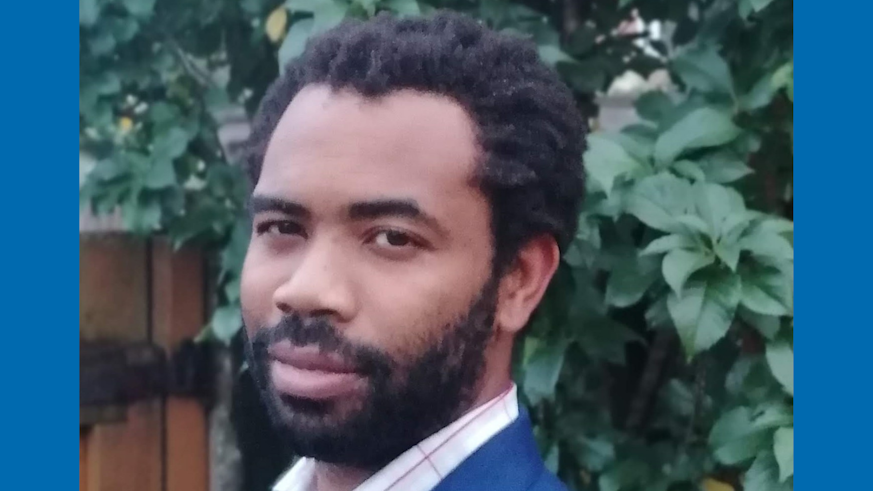‘More visibility is one of many important steps to improve lack of diversity'
23 February 2021

Cardiff-born neuroscientist Dr Dayne Beccano-Kelly takes up his role as leader of a team at the cutting edge of Parkinson’s Disease research at the UK Dementia Research Institute’s centre at Cardiff University this month.
Here, he discusses his research – and how he hopes to inspire the next generation of black leaders in science…
In Autumn 2020 – towards the end of a year in which we have all been hit very hard by unprecedented circumstances – I had some news to improve my spirits; I had been awarded a UK Research and Innovation Future Leader Fellowship. This means I have returned to Cardiff, the city where I was born, where for the first time I’ll lead a research lab.
The award allows me to establish scientific investigations to identify the earliest changes in Parkinson’s Disease in an effort to detect targets which could stop the disease before clinical symptoms start to appear. I will use models of disease that have the same genetics as human individuals predisposed to the disease. This will really allow me to focus on relating the disorder to human patients.
Finally, and perhaps most importantly, I will focus on the thing that makes the cells of the brain special: their ability to transmit and receive chemical-electrical signals. This speciality is likely the point at which initial breakdown occurs. Therefore, my work will allow us to tap into the first signs of disease and critically when we can intervene.
The UK Dementia Research Institute’s centre at Cardiff University offers the optimal place to do this, with world class scientists and facilities that will allow the transition from bench to beside (like the University’s brain research imaging centre, CUBRIC).
The UK DRI’s mission to identify early intervention targets in neurodegeneration through innovative and collaborative research, mirrors my own plans and ideals perfectly.
However, as a black individual, my appointment as a group leader in scientific research within the UK is a statistical anomaly.
The Higher Education Statistics Agency states that individuals who identify as black only make up 1% of UK university professorships. While I’m not at professor level yet, I enter into a realm which is bereft of diversity.
Speaking from my own experience, I have had many fabulous mentors who have taken a genuine interest in my development. However, I have rarely seen black scientists hold faculty and/or group leader positions in the departments I have worked in around the UK to date. This lack of visibility can be disheartening and can lead to self- doubt, as well as other people questioning the validity of your presence. For this reason, the improvement of visibility is one of many important steps to improve this lack of diversity in academic leadership positions.
Another important step to changing this narrative is the establishment of endeavours such as the Aspiring Black Physiologist Award. Set up by (and with tremendous support of) The Physiological Society, as well as colleagues past and present, the award aims to increase awareness among school-aged children of the many contributions of black scientists in the field of physiology and academic research.
Encouraging children to read and research this topic and recognise the illustrious history of black scientists, and put themselves in the perspective of being a future researcher, is vital to encourage them to consider an academic career. Presenting the idea of academic research as a viable career route at an early age will hopefully cement the idea early enough to begin to impact diversity in the future.
I don’t profess to having all the answers, nor should I – changes to the system have to be done by the majority, not the minority.
All I can do is help others to understand the issues, and let others know they are not alone in this field. I feel the best way to do this is by being visible and showing that it can be done.
Dr Beccano-Kelly was interviewed by BBC Radio 5 live broadcaster Naga Munchetty about his "detective work" on Parkinson's disease and his work to encourage the next generation of black leaders into science. Listen back here (approx 2.5 hours in).